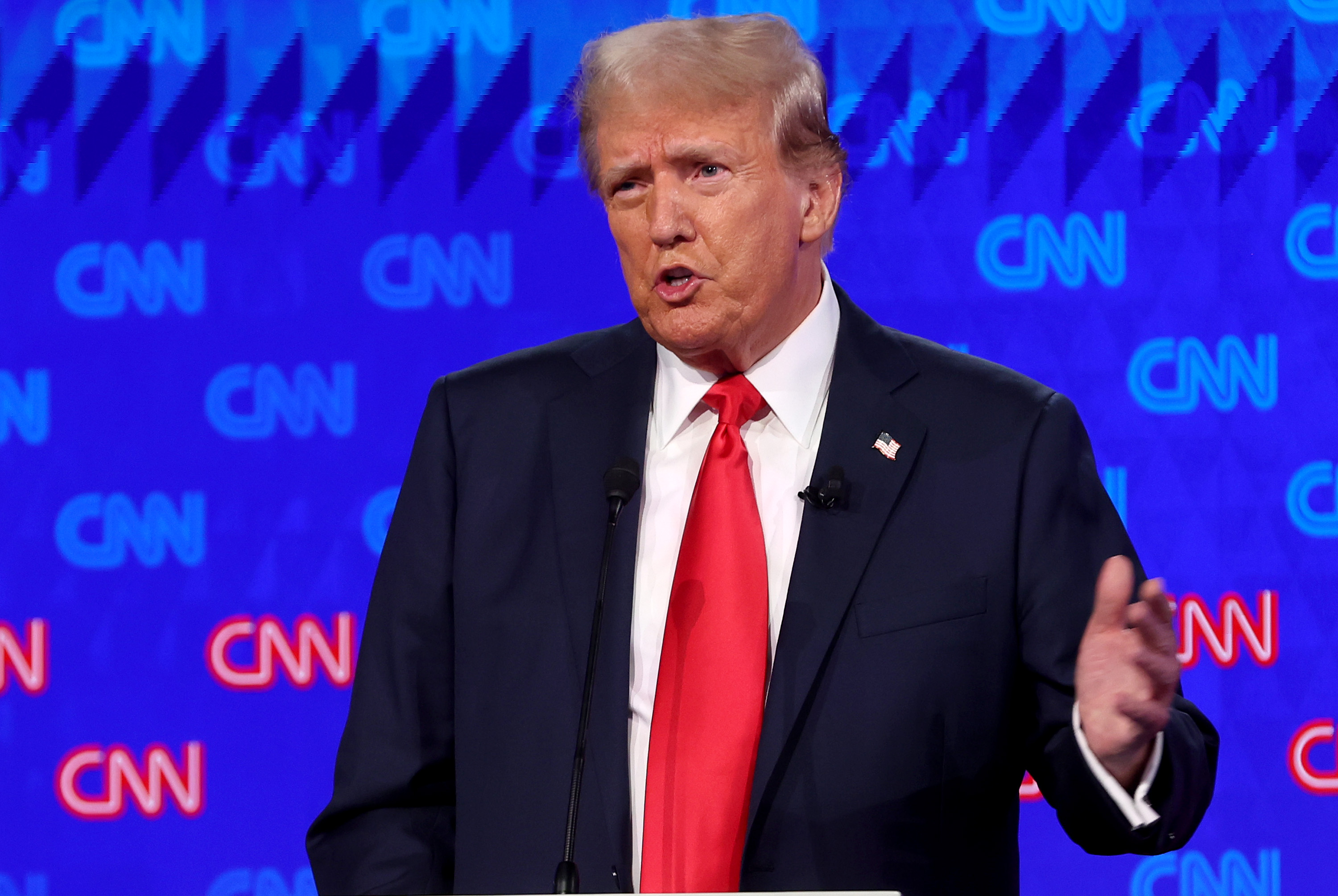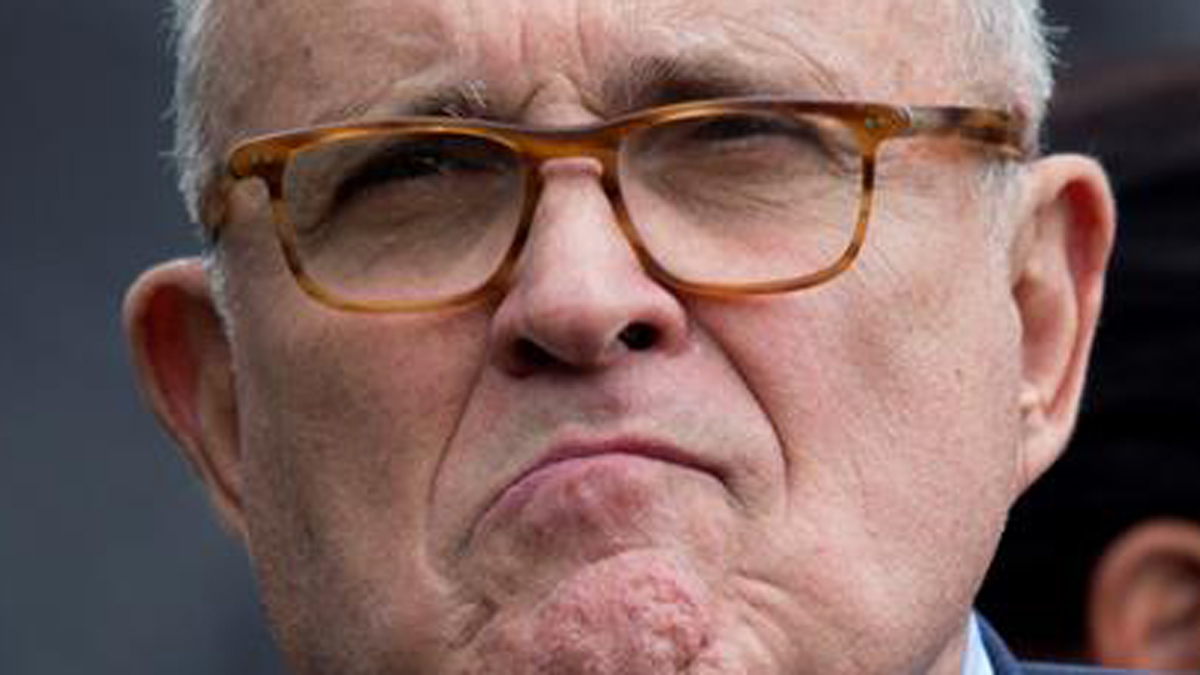Donald Trump’s lawyers are urging the judge in his New York hush money case to overturn his conviction and dismiss the case in the wake of the Supreme Court’s recent ruling on presidential immunity.
The former president's lawyers wrote in papers made public Thursday that prosecutors rushed to try Trump in the spring while the high court was still considering his immunity claims. Trump was convicted in May of falsifying records to cover up a potential sex scandal. He is the first ex-president convicted of a crime.
“Rather than wait for the Supreme Court’s guidance, the prosecutors scoffed with hubris at President Trump’s immunity motions and insisted on rushing to trial,” Trump’s lawyers Todd Blanche and Emil Bove wrote. "Your Honor now has the authority to address these injustices, and the court is duty-bound to do so in light of the Supreme Court’s decision.”
Merchan has said he’ll rule on the defense’s requests on Sept. 6 and will sentence Trump on Sept. 18, “if such is still necessary.” Prosecutors have until July 24 to respond to the defense's arguments.
Get top local stories in San Diego delivered to you every morning. Sign up for NBC San Diego's News Headlines newsletter.
Hours after the Supreme Court’s decision was released July 1, Trump’s lawyers raised it with Merchan, asking him to set aside the jury’s guilty verdict.
The ruling granted broad immunity protections to presidents, insulating them from prosecution for official acts. The court also restricted prosecutors from citing any official acts as evidence in trying to prove a president’s unofficial actions violated the law.
The Supreme Court did not define what constitutes an official act, leaving that to lower courts.
Trump lawyers said jurors shouldn’t have been allowed to hear about some matters, including some of Trump’s conversations with then-White House Communications Director Hope Hicks, testimony from another aide about how Trump got personal mail in the Oval Office, and some tweets that he sent while president. Some of the checks and invoices at issue in the case were also from his time as president.
Trump’s trial began April 15. The Supreme Court didn’t hear arguments on the immunity issue until April 25.
A Manhattan jury convicted Trump on May 30 on 34 felony counts of falsifying business records arising from what prosecutors said was an attempt to cover up a $130,000 hush money payment to porn actor Stormy Daniels just before the 2016 presidential election.
Daniels claims she had a sexual encounter with Trump in 2006 after meeting him at a celebrity golf tournament in Nevada. Trump has repeatedly denied that claim, saying at his June 27 debate with President Joe Biden, “I didn’t have sex with a porn star.”
He has vowed to appeal the conviction but would not be able to do so until he is sentenced.
Prosecutors said the Daniels payment was part of a broader scheme to buy the silence of people who might have gone public during the campaign with embarrassing stories alleging Trump had extramarital sex.
Trump denied any wrongdoing and said all the stories were false.
Trump’s former lawyer Michael Cohen paid Daniels and was later reimbursed by Trump. Prosecutors said Cohen — with Trump’s knowledge — disguised the reimbursements by submitting monthly invoices for retainer payments as Trump’s personal lawyer. Trump’s company logged the payments to Cohen as legal expenses.
Trump was convicted after a seven-week trial that featured testimony from 22 witnesses, including Cohen and Daniels. Trump declined to testify on his own behalf.
Trump’s lawyers had previously invoked presidential immunity in a failed bid last year to get the hush money case moved from state court to federal court.
U.S. District Judge Alvin Hellerstein rejected Trump’s claim that allegations in the hush money indictment involved official duties, writing in July 2023, “The evidence overwhelmingly suggests that the matter was a purely a personal item of the president — a cover-up of an embarrassing event.”
“Hush money paid to an adult film star is not related to a president’s official acts. It does not reflect in any way the color of the president’s official duties,” Hellerstein added.
Later, Trump’s lawyers sought to delay the hush money trial until the Supreme Court ruled on his immunity claim. Merchan denied the request, declaring it untimely because it came well after a deadline for pretrial motions.
Trump’s lawyers never raised presidential immunity as a defense in the hush money trial, but they tried unsuccessfully to prevent prosecutors from showing the jury evidence from his time in office.
Among other things, Cohen and ex-National Enquirer publisher David Pecker testified that Trump talked with them in the Oval Office during separate 2017 visits about aspects of the hush money arrangements. Jurors saw multiple 2018 Trump tweets about Cohen, which prosecutors portrayed as efforts to pressure Cohen not to cooperate with authorities and punish him when he did. The jury heard testimony from Trump aides about how he’d sign checks for personal expenses while in the White House, during the period when he was signing checks for Cohen’s reimbursement.
The ongoing immunity fight and ensuing sentencing delay have spared Trump the damage of a potential prison sentence, probation, fine or other punishments just days before Republicans are set to formally nominate him as their presidential candidate at the party’s convention next week in Milwaukee.
The delay avoids the potential split screen of Trump being sentenced while Democrats continued to debate President Joe Biden’s viability as a reelection candidate after his dismal debate performance last month.
Falsifying business records is punishable by up to four years behind bars. Other potential sentences include probation, a fine or a conditional discharge that would require Trump to stay out of trouble to avoid additional punishment.
If Trump were to be sentenced to jail, he could be allowed to remain free while he appeals. Because it is a state case involving state-level charges tried in a state court, Trump would not be able to pardon himself if he were to be elected president again. Presidential pardons apply only to federal crimes.



